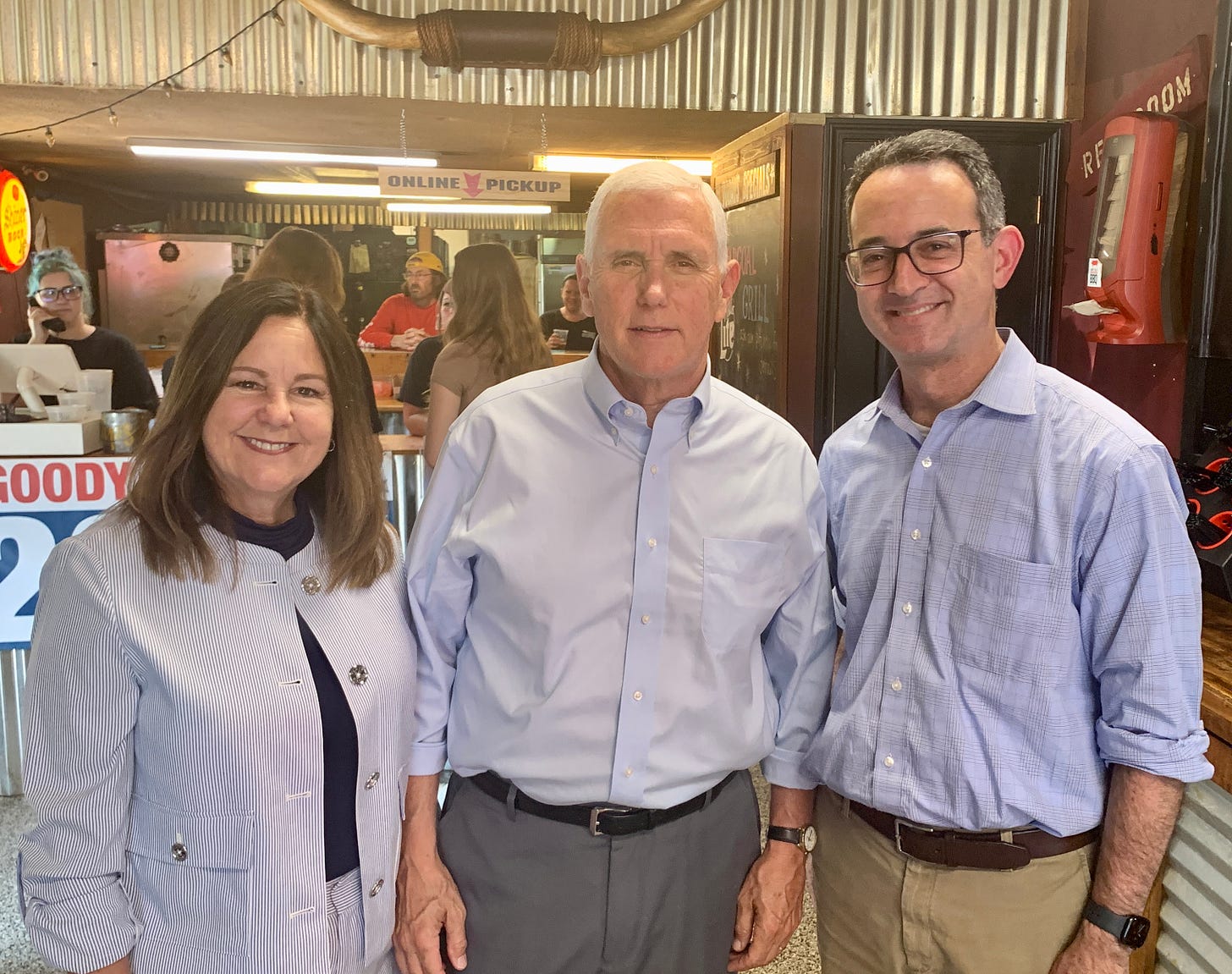No party for institutionalists
Mike Pence was winnowed out by a Republican Party that is very different from the one he got started in
Mike Pence has withdrawn from the 2024 Republican presidential contest, less than three months prior to the Iowa caucuses. His campaign’s failure to gain traction reminds us of a number of important things — his party has transformed significantly in recent years, and no amount of campaign skill was going to overcome that.
One moment I got to witness earlier this year that keeps coming back to me was Pence’s appearance at the Faith and Family Coalition Kickoff in Iowa this past April. Pence was one of the highest profile candidates to appear at that event, and he made a point of working the room before the program began. Quite a few people went up to shake his hand and take selfies with him. The largely evangelical crowd seemed to regard him as a friend and ally, one of their own. And as they walked away from him, several shook their heads and muttered, “Too bad about him.”
Pence, that is, was right on all the issues important to them, with the exception of one essential one — he wasn’t willing to bend the knee on January 6th. These evangelicals did not necessarily view Trump as one of their own, but they had total faith in him as a president and candidate that he’d deliver on the issues they cared about.
Regular readers will note that I tend to think campaigning skills are, if not irrelevant, somewhat overrated. Joe Biden was one of the weaker campaigners (in terms of public speaking, debating, fundraising, etc.) of the 2020 Democratic presidential nomination contests, but still won because party elites were largely behind him and not behind his competitors.
The failure of Pence’s campaign is another data point in favor of this argument. Particularly in the first Republican presidential debate in August of this year, Pence was quite good. (I thought he did the best, although many others gave that to Haley.) He handled the crowded debate stage well, getting in some solid zingers against Vivek Ramaswamy (of course) and controlling a lot of debate time while making strong affirmative cases for supporting Ukraine and other stances on which the party is less than unified. And he’s definitely made the rounds in the early contest states. Apart from an awkward sex joke at the second debate, I’d have a hard time faulting him for his campaign skills. But none of that translated to any real support.
It’s rather striking that a former vice president was running against his former running mate (no less the former running mate who nearly got him killed) and the party was basically not split at all about it. It’s also striking that Trump tapped him as his running mate in 2016 for a very solid strategic reason — to help win over the evangelical Christian crowd so crucial to the Republican Party. But Trump is now not at all dependent on anyone for help in maintaining that constituency.
But a final thing to note is that the Republican Party is no longer what it was when Mike Pence started running for office, or even when he became Vice President. Pence’s saga is like a somewhat more mild version of Mitt Romney’s story: a conservative institutionalist falling out of step with an increasingly populist party. He basically did what was asked of him as Vice President, but he was not willing to burn everything to keep Donald Trump happy, and for that his career was over.
I was never completely sure what he thought he was doing in running for president this year. It’s perfectly understandable if he wanted a better ending to his political career than the events of January 6th, and there was always some reason to hope that enough religious conservatives would come to his aid to at least keep the race interesting. And like the other candidates, he likely thought there was some chance Donald Trump would drop out due to the many other impediments facing him, and after that’s it’s a much more open field.
But Pence just couldn’t find a segment of the party who wanted him there. This was a true winnowing; he did what he could in this environment, and the Republican Party told him in no uncertain terms that they were not interested in what he was selling.







There’s only one word in this piece with which I disagree, and that word is “populist”. I literally wince every time I see the term used to describe the MAGA menace, as it is, IMHO, a word that has been stretched into meaninglessness by reporters and commentators seeking to avoid calling out fascists for what they are. There was nothing genuinely populist about how Trump governed, from his tax cuts for the wealthy to his billionare-ridden cabinet to his corporate-friendly judicial picks. To use the term to describe him merely reinforces and rewards his con, which is exactly what the press needs to stop doing immediately.
Marcy Wheeler put it this way, "The GOP is little more than a criminal protection racket to shelter one man, Donald Trump."